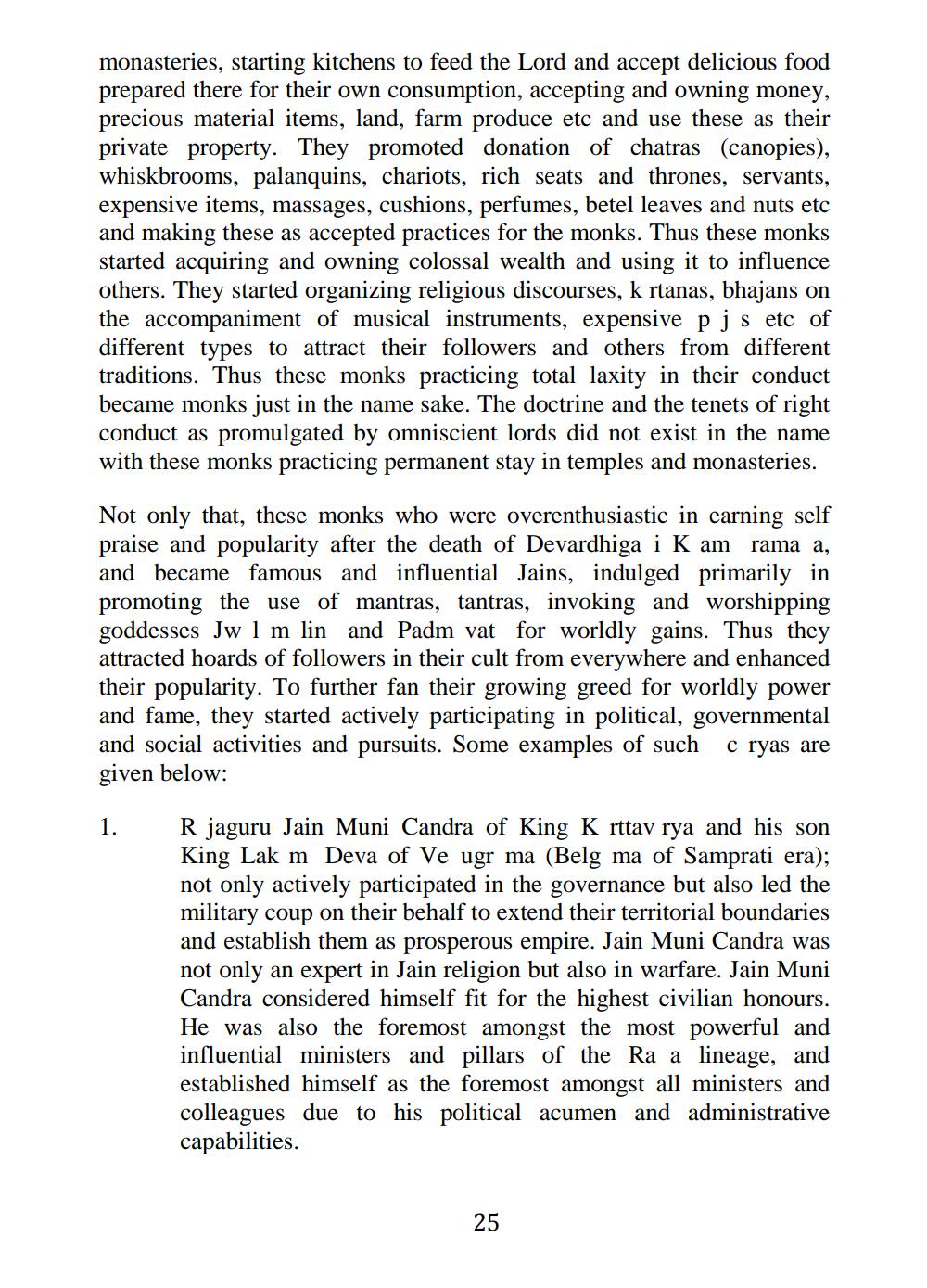________________
monasteries, starting kitchens to feed the Lord and accept delicious food prepared there for their own consumption, accepting and owning money, precious material items, land, farm produce etc and use these as their private property. They promoted donation of chatras (canopies), whiskbrooms, palanquins, chariots, rich seats and thrones, servants, expensive items, massages, cushions, perfumes, betel leaves and nuts etc and making these as accepted practices for the monks. Thus these monks started acquiring and owning colossal wealth and using it to influence others. They started organizing religious discourses, k rtanas, bhajans on the accompaniment of musical instruments, expensive pj s etc of different types to attract their followers and others from different traditions. Thus these monks practicing total laxity in their conduct became monks just in the name sake. The doctrine and the tenets of right conduct as promulgated by omniscient lords did not exist in the name with these monks practicing permanent stay in temples and monasteries.
Not only that, these monks who were overenthusiastic in earning self praise and popularity after the death of Devardhiga i K am rama a, and became famous and influential Jains, indulged primarily in promoting the use of mantras, tantras, invoking and worshipping goddesses Jw 1 m lin and Padm vat for worldly gains. Thus they attracted hoards of followers in their cult from everywhere and enhanced their popularity. To further fan their growing greed for worldly power and fame, they started actively participating in political, governmental and social activities and pursuits. Some examples of such c ryas are given below:
1.
R jaguru Jain Muni Candra of King K rttav rya and his son King Lak m Deva of Ve ugr ma (Belg ma of Samprati era); not only actively participated in the governance but also led the military coup on their behalf to extend their territorial boundaries and establish them as prosperous empire. Jain Muni Candra was not only an expert in Jain religion but also in warfare. Jain Muni Candra considered himself fit for the highest civilian honours. He was also the foremost amongst the most powerful and influential ministers and pillars of the Ra a lineage, and established himself as the foremost amongst all ministers and colleagues due to his political acumen and administrative capabilities.
25




